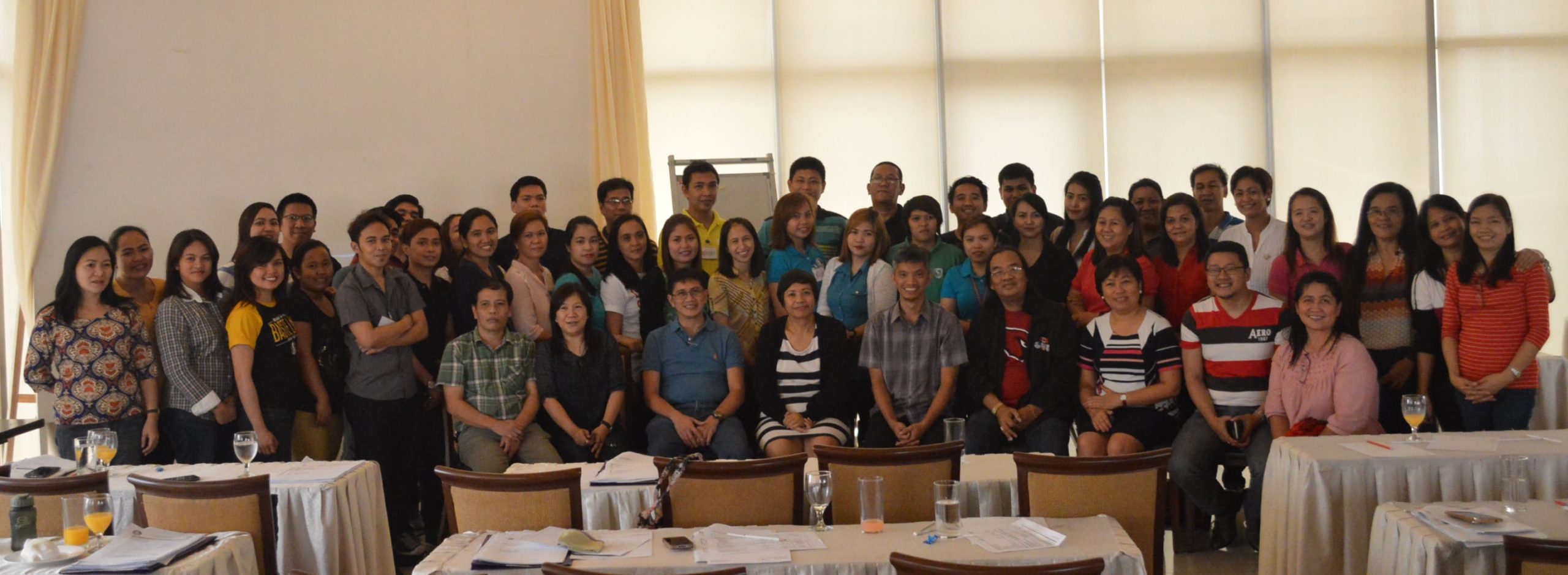Pushing for gender-responsive governance, the Land Management Bureau (LMB) organized a two-day Gender and Sensitivity Training (GST) for newly appointed and promoted employees last July 14 – 15, 2016 at the Ramada Hotel, Binondo, Manila. The training is a mandatory activity that realizes the initiatives of the Gender and Development (GAD) Program, a priority program of the government that recognizes the situation of both women and men in society against existing prejudices. GAD Focal Point Alicia T. Robles oversees the LMB GAD projects together with GAD Secretariat Head Loribelle P. Lluz.
Pushing for gender-responsive governance, the Land Management Bureau (LMB) organized a two-day Gender and Sensitivity Training (GST) for newly appointed and promoted employees last July 14 – 15, 2016 at the Ramada Hotel, Binondo, Manila. The training is a mandatory activity that realizes the initiatives of the Gender and Development (GAD) Program, a priority program of the government that recognizes the situation of both women and men in society against existing prejudices. GAD Focal Point Alicia T. Robles oversees the LMB GAD projects together with GAD Secretariat Head Loribelle P. Lluz.
Invited resource persons include Roy Stephen A. Tolentino, an economist for the Department of Environment and Natural Resources (DENR) and Gemma Ifurung, Technical Adviser for GAD, Tolentino introduced the GAD concept and oriented the employees to common gender issues, situationers and legal bases with comprehensive recreational activities and forums. He also presented a fact sheet on Filipino women. Statistics on employment shows that women rate slightly lower than men (89.8% to 89.9%) with a 0.01 margin. Gender stereotyping, which is the process of attributing roles, perceptions and traits about men in women, also occurs in workplace, with women as officials in the government (58.4%) and men in construction (97.9%), due to prevailing gender roles.
Ifurung, on both days, expounded the Magna Carta of Women (MCW), with its rules and regulations. Established by RA 9710, the MCW became a landmark law for women and is generally considered to be the translation of the policy of the Convention on the Elimination of All Forms of Discrimination against Women (CEDAW), an international mandate. Women’s rights are guaranteed under the banner of the MCW and calls for the protection of women against violence and other abuses. Citing the importance of Gender Mainstreaming (GM), which is the integration of the men and women concerns in the planning, design, evaluation and monitoring of programs and policies in all societal spheres that will result to the benefit of both sexes, Ifurung emphasized the need for the utmost utilization of the four GM Entry Points, namely: policy, people, enabling mechanisms, and programs, projects and activities.
The conduct of GST and the teaching of the gender analysis tool to employees for them to be equipped with the knowledge under the GAD program is just one of the many monumental steps the LMB has taken in this time wherein change has indeed come. With the success of the training are the hopes of better and improved work relations in the government, as well in the society.

